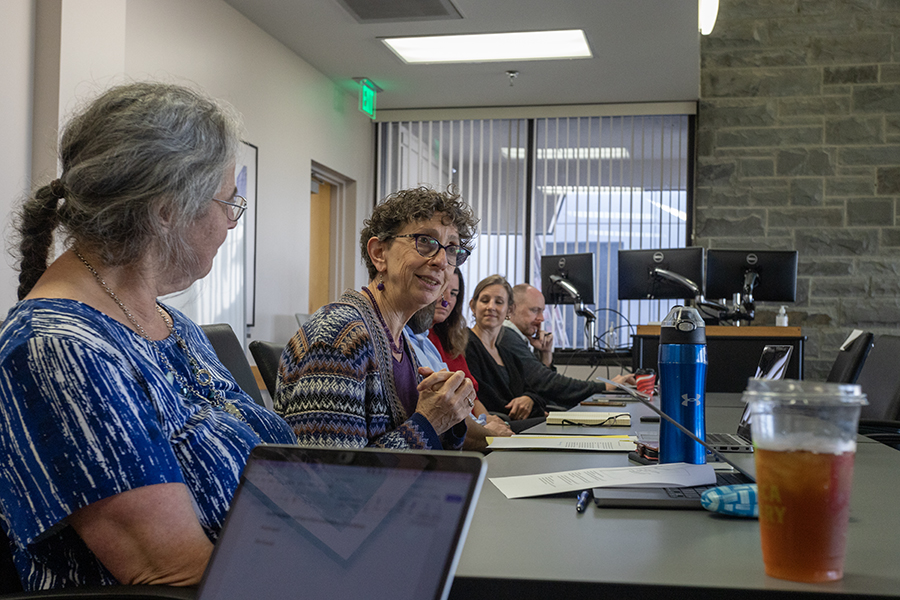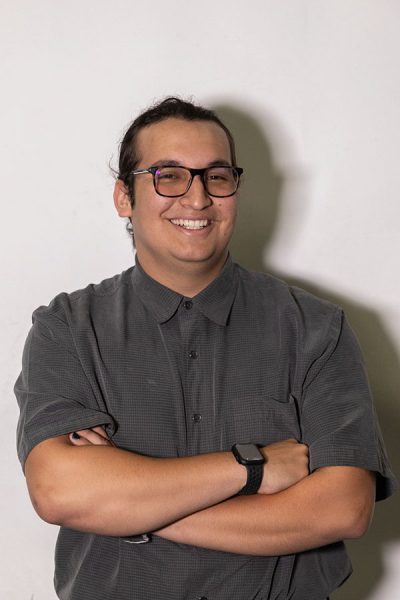Ithaca College’s Faculty Council met Oct. 1 to discuss the changes and successes of the summer academic onboarding and pre-registration process. The council also heard new plans from the college’s Marketing and Communications team.
Stacia Zabusky, associate provost for academic programs, gave updates on the summer 2024 enrollment process for first-year students and the implementation of a custom-built machine-learning program for new student registration. She discussed the success of the pre-registration process, in which the college built schedules for incoming students during the faculty council meeting in October 2023.
Zabusky said one of the main focuses for her office was redesigning the academic interest survey to make it easier to place students in their Ithaca College Seminar classes and other electives. She said a custom-built machine-learning program helped place students in their first-semester classes.
“It’s an algorithm that we worked out with our IT partners to take all the rules we use for schedule-building manually and try to build a program to allow us to match what the students said in their interest survey with the classes that were available and what their the rest of their schedule was,” Zabusky said.
Zabusky explained that a manual review of the process was still required as certain factors, like schedules for varsity athletes, were not initially included in the matching program.
She said that 90% of incoming students filled out the academic interest survey by June 12, a 5% increase from 2023, and 93% completed the math placement exam by the end of June, an 8% increase from 2023. Zabusky also stated that the percentage of incoming students who paid the deposit to commit to the college, but decided not to attend or deferred has decreased from 11.07% in Fall 2022 to 8.81% in Fall 2024.
“Our feeling is that we want them to start from a foundation, where we know we’ve set them up for success and reduced stress and anxiety,” Zabusky said. “‘What am I going to take? How’s it going to work?’ They don’t have any of that because we figured it out for them based on what they told us.”
Discussion with Marketing and Communications
Allison Usavage ’11, senior director of design and multimedia; Melissa Marchese, executive director of marketing strategy; and Sloan MacRae, senior director of communications, walked through some examples of their new strategies to strengthen student recruitment and advance alumni engagement. MacRae explained the beat system, which has one faculty member from each school, department or college theme that would communicate with the Marketing and Communications team to find stories to tell. The team helps manage the Ithaca College website and works to post these stories across social platforms.
“[The beats] are kind of the eyes and ears embedded in each of these schools and areas, and we’ll probably have quarterly meetings with the respective stakeholders, where we sort of hear from you what stories to tell, and what the opportunities are so we don’t miss anything,” MacRae said. “We also have thematic beats, which are the things that maybe don’t fall into the silos of schools and departments.”
Usavage said the referrals and story ideas generated by the beat system will then go through a process in which the marketing team decides what to prioritize and what should be covered. Usavage said they scope out what a minimum viable story is and produce that first.
“We produce that minimum viable story and then we can take that core concept and we adapt it,” Usavage said. “So the same story can show up in a bunch of different channels, in different ways, for different audiences. So once we put stuff out there, we evaluate it and if it’s performing extremely well, then we can expand upon it, because we’ve done that whole story first.”
Usavage also said finding and planning stories has allowed the team to get a sense of the college and has been an important aspect of the storytelling process.
“We’re finding stories where they’re at rather than going out with a magnifying glass trying to fit something that meets our needs,” Usavage said. “We want to be finding the stories that are happening anyway and then figuring out how we can implement it.”
Provost Report
Melanie Stein, provost and senior vice president for academic affairs, gave her report to the Faculty Council. Stein explained that the schedule grid that is now in place is going to be changed to have less overlap of class times, which has been a cause of the earlier schedule due date and frustrations among students and faculty.
Stein said her office reached out to all of the department chairs and program directors to figure out an improved grid by the end of the semester. She said if the working group is able to complete the change of the schedule grid by the end of Fall 2024, it can be implemented before the start of the next academic year. Stein said this would resolve many scheduling issues within the Office of the Registrar.
“We’re looking at the most current meeting times and then trying to figure out the grid that fits what’s actually happening on campus,” Stein said. “It’s going to require balance with enabling the kind of scheduling people want to do and with reducing the number of overlaps.”









